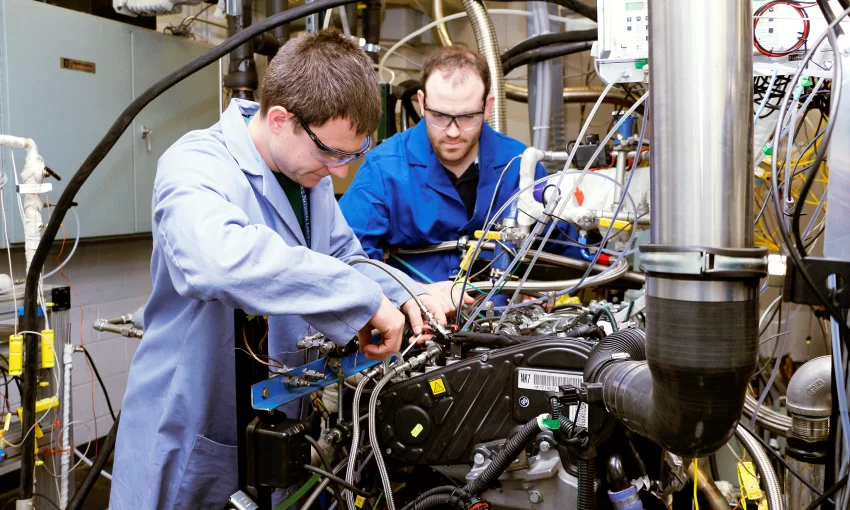Diesel Particulate Filters (DPFs) are critical in minimizing emissions from diesel engines, capturing soot and other pollutants before they can be released into the atmosphere. This not only helps in keeping the air cleaner but also ensures compliance with increasingly stringent environmental standards. However, DPFs require regular maintenance to function effectively like any other vehicle component. Neglect can lead to expensive repairs and significantly shorten your vehicle’s lifespan. Recognizing the signs that your DPF needs attention is essential. From decreased engine performance to unusual smells and warning lights on your dashboard, these signals should not be ignored. Proactive maintenance and prompt response to these warnings can save you from costly repairs and keep your vehicle running smoothly for years. Thus, understanding and maintaining your DPF is not just about adhering to regulations. Still, it’s also a crucial aspect of vehicle care that ensures efficiency, longevity and contributes to a cleaner environment.
Decreased Performance and Increased Fuel Consumption
A noticeable dip in your vehicle’s performance is one of the earliest signs that your Diesel Particulate Filter (DPF) might be facing issues. This can manifest in several ways, such as losing power, reduced acceleration, and increased fuel consumption. When a DPF becomes clogged with soot and other particulate matter, exhaust flow is restricted. This restriction can lead to increased backpressure on the engine, affecting its efficiency and performance. Instead of running smoothly, your vehicle has to work harder to achieve the same output levels, thereby consuming more fuel.
But why does a clogged DPF lead to a significant performance decrease? The answer lies in how diesel engines work. These engines rely on a precise balance of air and fuel for optimal combustion. When the exhaust system is blocked, it disrupts this balance, leading to incomplete combustion. This reduces the engine’s power and increases the production of soot, further exacerbating the problem in a vicious cycle.
Warning Lights on Dashboard
When the Diesel Particulate Filter (DPF) encounters problems, your vehicle is designed to alert you through various warning lights on the dashboard. Among these, the most direct is the DPF indicator, often symbolized by a filter-like icon. However, it’s common for the engine management light to illuminate as a signal of underlying DPF issues. These warning lights are your vehicle’s way of communicating that something isn’t right and should never be ignored.
Understanding what these lights mean is crucial for maintaining your vehicle’s health. When illuminated, they suggest that the DPF is possibly clogged and needs regeneration or professional attention. Most modern vehicles have a self-regeneration capability, where the system attempts to burn off accumulated soot at high temperatures. However, this process requires specific driving conditions, typically a longer, high-speed drive. If these conditions aren’t met frequently, the DPF might not successfully regenerate, leading to these warning signals.
Ignoring these lights and continuing to drive without addressing the root cause can cause severe damage to your vehicle. A completely blocked DPF significantly reduces engine performance and can lead to increased maintenance costs. In extreme cases, it could also necessitate a costly replacement of the entire DPF system.

Difficulty Starting the Engine or Unusual Smells
Problems with the Diesel Particulate Filter (DPF) can extend beyond performance issues and warning lights. Two less commonly recognized signs that your DPF may require attention include difficulty starting the engine and the presence of unusual smells. If your vehicle struggles to start or notices odd smells reminiscent of sulfur or burning—similar to the smell of rotten eggs—this could indicate that the DPF is severely clogged. This blockage can prevent the engine from starting as smoothly as it should due to inadequate exhaust flow, which affects the overall engine operation.
Ignoring these signs and continuing to drive can lead to the engine running inefficiently, increased fuel consumption, and potentially expensive repairs down the line. In severe cases, a blocked DPF can also cause engine damage. Given these risks, it is vital to consult a professional mechanic or service provider at the first sign of trouble. They can diagnose the issue accurately, using advanced tools and techniques, and provide the necessary service or repairs. Addressing DPF problems early on can save you from more severe engine issues, ensuring your vehicle remains reliable and performs optimally.
Final Thoughts on DPF Maintenance
Recognizing the signs that your Diesel Particulate Filter (DPF) needs attention is vital for maintaining your vehicle’s performance and longevity. From decreased performance and increased fuel consumption to warning lights on the dashboard and unusual engine behavior, being aware of these indicators can save you from costly repairs. Regular check-ups and promptly addressing issues ensure your vehicle runs smoothly and contribute to a cleaner environment. The DPF plays a crucial role in reducing emissions from diesel engines, making its maintenance not just a matter of vehicle health but also of environmental responsibility.
At the first sign of DPF trouble, seeking professional assistance is the best course of action. For expert maintenance services and advice on keeping your diesel engine clean and green, consider turning to DPF Canada. Our specialized knowledge in DPF care ensures that your vehicle performs at its best and aligns with emission standards, ensuring a positive impact on your wallet and the planet. Engaging with professionals who understand the intricacies of DPF systems can provide peace of mind and prevent future issues, allowing you to enjoy your diesel engine’s full efficiency and environmental benefits.
